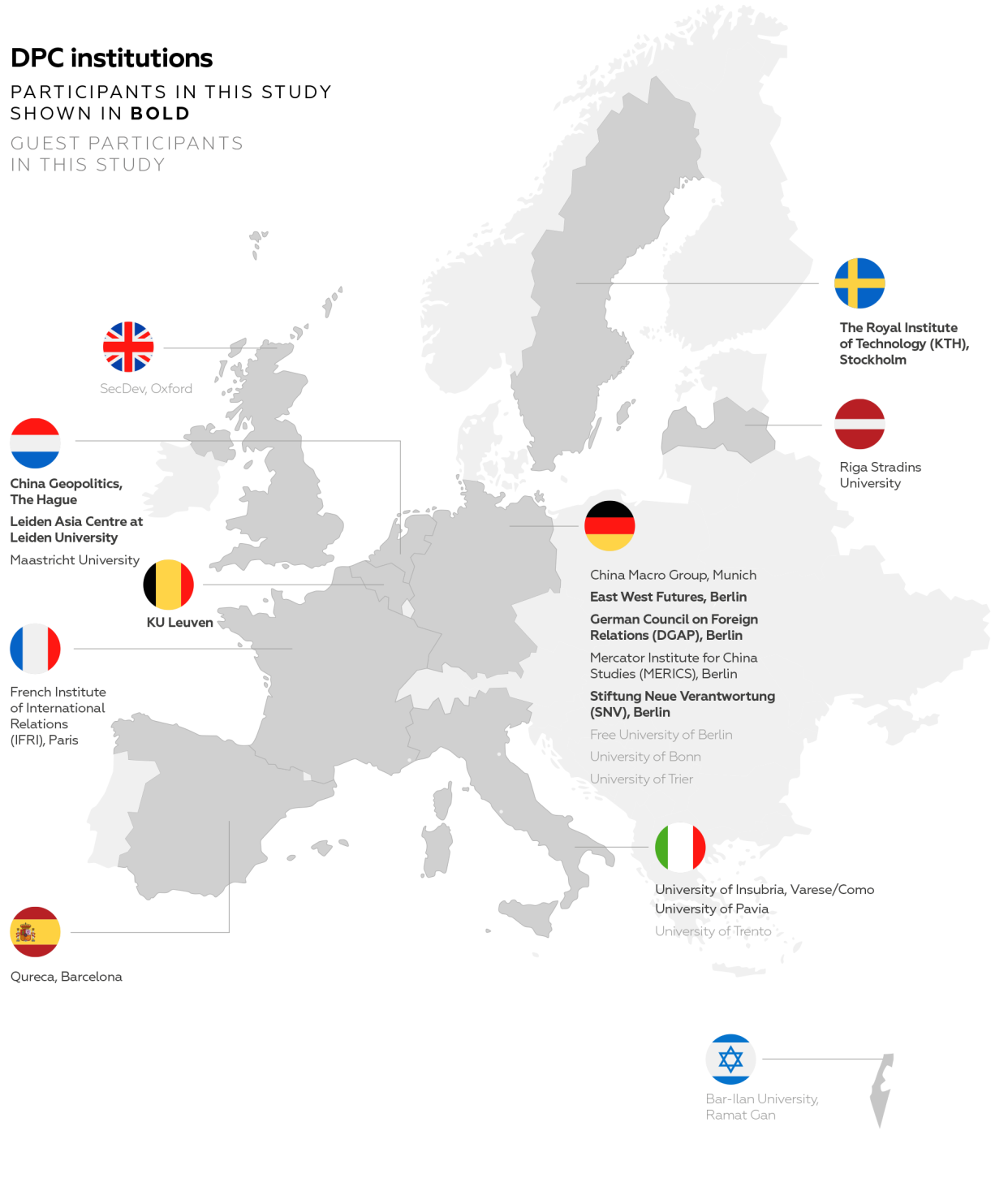DPC Report: Europe’s Strategic Technology Autonomy From China
The Digital Power China Research Consortium published a new report on strategic autonomy in technology. The LeidenAsiaCentre contributed to two chapters of this report. For more information about the report, click on the link in the sidebar.
About the Digital Power China Research Consortium
The Digital Power China (DPC) research consortium is a gathering of China experts and engineers based in eight European research institutions, universities, think tanks and consultancies. Not all DPC researchers contribute to every report. For this report, DPC has been joined by invited guest researchers.
The group is devoted to tracking and analysing China’s growing footprint in digital technologies, and the implications for the European Union. DPC offers the EU concrete policy advice based on interdisciplinary research. Tim Rühlig, Senior Research Fellow at the German Council on Foreign Relations (DGAP), is the convenor of DPC and co-chairs the initiative with Carlo Fischione, a Professor at the Royal Institute of Technology in Stockholm.
DPC systematically pairs technological and country expertise, which is based on rigorous academic research combined with experience of the provision of policy advice. The informal group brings together a variety of European researchers in order to combine diverging perspectives from across the continent. Responsibility for the accuracy of the views expressed remains solely with the indicated authors. This report has been generously funded by the German Foreign Office.
LAC researchers Rogier Creemers and Sanne van der Lugt contributed to this DCP report in the following chapters:
Crypto Without the Currency: China’s Blockchain Strategy
Cyrille Artho and Rogier Creemers
Blockchain is considered a promising emerging technology of strategic importance in both Europe and China. The Chinese government is forging ahead with support for research and technological development, as well as the rollout of blockchain-based initiatives such as the Blockchain Service Network (BSN). Missing from its approach, however, is use of blockchain to underpin cryptocurrency. What will the impact of these ambitions be on European strategic interests? This chapter reviews the technical status quo for blockchain, compares Chinese and European visions and policy frameworks, and provides an overview of the different ways in which blockchain will affect elements of European strategic autonomy — from supply chain resilience to national security, values and sustainability, and technological competitiveness. It concludes with recommendations for European policymakers on responding to the Chinese blockchain challenge.
Chinese Vehicle-to-Everything (V2X) Technology and the European Car Industry
Sanne van der Lugt, Raúl Rojas, and Frans-Paul van der Putten
The European Union car manufacturing industry does not currently appear to be dependent on Chinese suppliers of vehicle-to-everything (V2X) technology. But given the scale and pace of application of V2X in China, it is possible that Chinese companies could eventually become highly competitive internationally. This could present various risks for EU strategic autonomy, in particular with regard to supply chain resilience and technological competitiveness. National security and values-related risks also require serious attention. That said, the evolution of Chinese V2X technology could also provide opportunities for the EU to strengthen its strategic autonomy. Provided that Chinese suppliers do not become dominant, that Chinese standards are open and developed jointly with non-Chinese actors and that EU car user data is protected from access by the Chinese government, the EU could benefit from European-Chinese cooperation on accelerating the transition to electric driving and smart mobility, maintain an innovative and competitive car industry, and mitigate strategic dependence on US technology firms.


